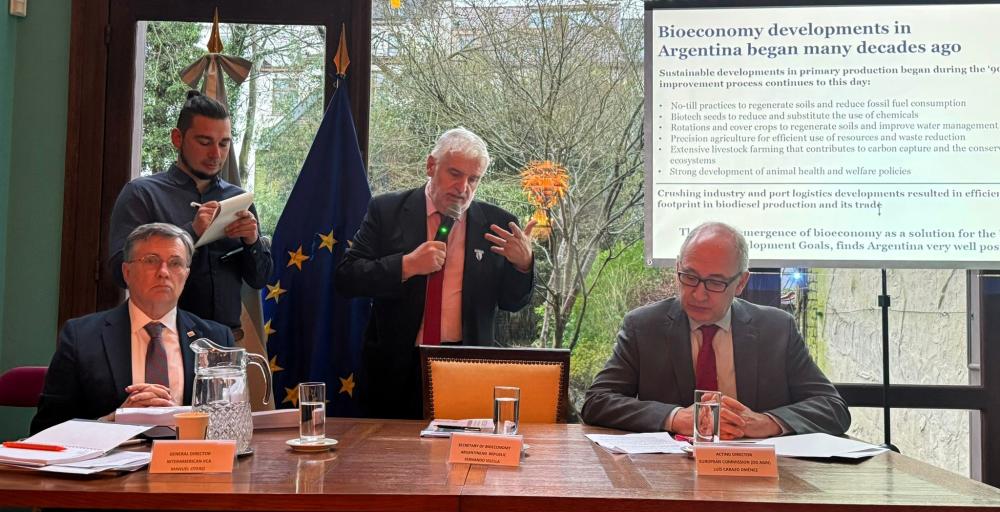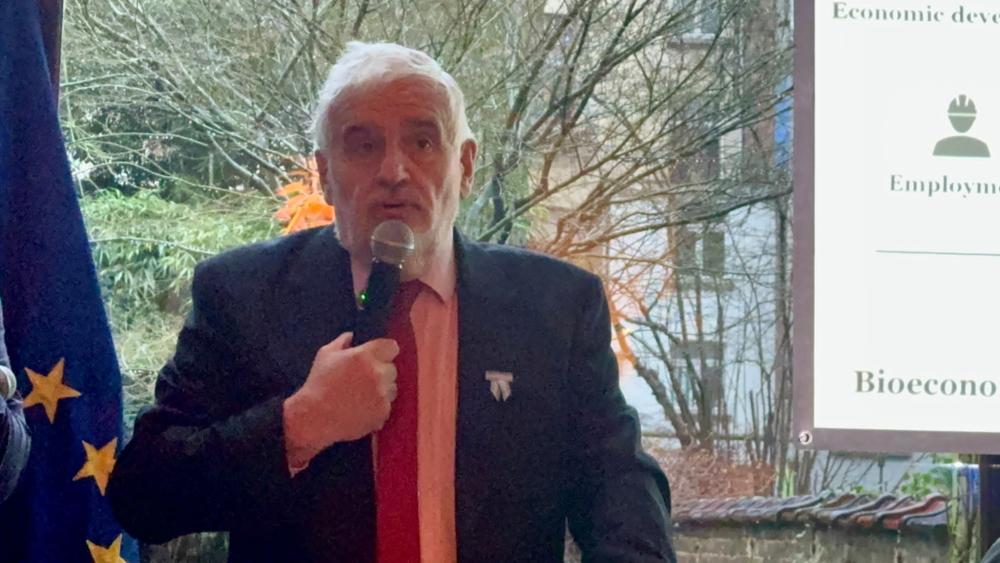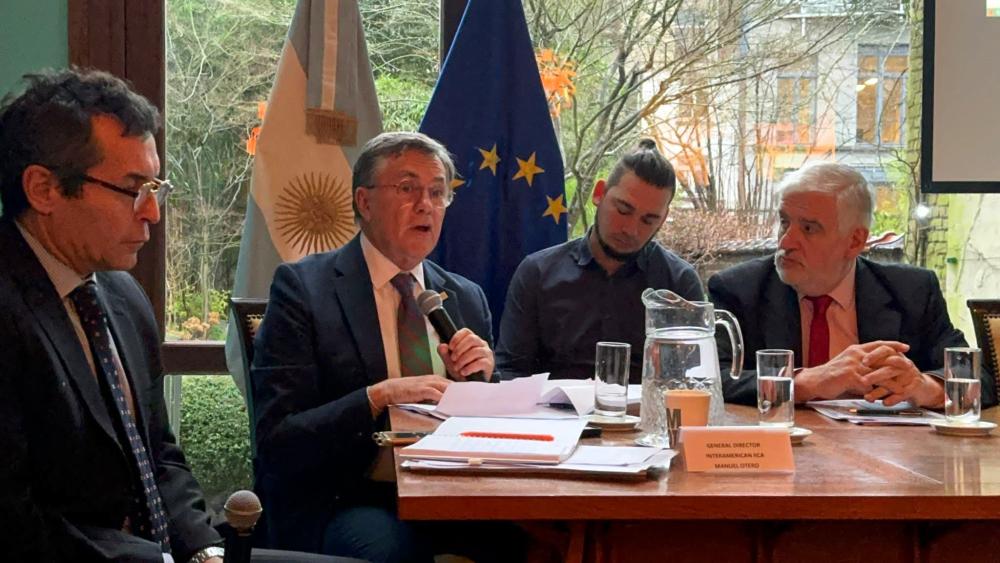Argentina’s Secretary of Agriculture and Director General of IICA give European Union officials details of the potential of the bioeconomy in Latin America

Brussels, Belgium, January 24, 2024 (IICA). The bioeconomy can create quality jobs, increase productivity, and form an integral part of the territorial development of Argentina and other countries in the region, all within an environment of sustainability, argues Fernando Vilella, the new Secretary of Agriculture, Livestock and Fisheries of the South American nation.
Vilella and the Director General of the Inter-American Institute for Cooperation on Agriculture (IICA), Manuel Otero, spoke at a seminar on the bioeconomy’s contribution to sustainable development held at Argentina’s Embassy to the European Union (EU), in Brussels, Belgium.
The event was used to present to EU officials the projects that are being implemented in the field of bioeconomy and sustainable agriculture in Argentina and other Latin American countries.
Vilella and Otero’s presentations highlighted the bioeconomy’s potential for improving the competitiveness, sustainability and inclusion of the agrifood systems of the Americas, and diversifying exports in a way that is compatible with care for the environment.
Vilella defined the bioeconomy as the use of biomass to generate products and inputs under a circular economy approach that reduces the environmental and social impacts of production.
Also taking part in the event were Argentina’s Agricultural Attaché to the EU, Gastón Funes, and Chargé d’affaires, Atilio Berardi, along with members of different delegations who perform their duties at the Headquarters of the body responsible for the joint political and economic policies of the European countries.
Vilella announced his decision to change the name of his ministry, explaining that: “We think it appropriate to transform what has traditionally been known as the Secretariat of Agriculture, Livestock and Fisheries into the Secretariat of Bioeconomy. This is part of a long process that began in the 1990s with the incorporation of technologies and processes that have brought us to this point.”
He said that the bioeconomy essentially provides the production system with solutions, making it possible to protect both producers and the environment in which production takes place.
“We have abundant natural resources and diverse climates that allow us to produce biomass with many different characteristics that can serve as the basis of virtuous systems with added value,” he added. “We also have a trained scientific and technological community that has demonstrated over time its ability to form an integral part of the transformation of production.”

Vilella believes that the transformation of biomass into different products, such as bioenergy, combined with pastoral livestock farming with low environmental impact, is part of the solution to the climate crisis. It also offers Argentina a great opportunity to achieve sustainable development and integration into markets with robust environmental standards in place.
The official shared concrete scientific data showing the low carbon footprint in Argentina of crops such as corn—used to produce ethanol—, soybean—used for biodiesel—and wheat, compared with production in Europe. The data was produced according to the standards of the Intergovernmental Panel on Climate Change (IPCC).
“We want to step up sustainable production. We aim to demonstrate it with certification and traceability systems for all products, so as to gradually build a country brand. But we do need to eliminate trade barriers. We are always pressing for open markets that would allow us to access as many parts of the world as possible with environmentally friendly products.”
Ongoing process
Manuel Otero explained that the Latin American countries have already made great strides with the bioeconomy, especially in the fields of biotechnology, biorefineries, biofuels and bioinputs.
“Development of the bioeconomy is an ongoing process in our region,” he said. “And public policies must create the conditions for it to grow in size and scale, and to speed up its development. The objective is to transform agriculture, to give our sector a new face and show it to the rest of the world. As Fernando Vilella pointed out, we are part of the solution and guarantors not only of food security but also of environmental stability.”
Otero believes that the new biological products and services offered by the bioeconomy are not only driving higher production and more efficient use of biological resources, but also promoting the development of rural territories, where the biomass is found, and contributing to the global objectives of reducing greenhouse gas emissions.

The IICA Director General explained that technological advances were achieved and businesses created in the region’s bioeconomy without the countries necessarily having strategies or institutions in place to promote them. Only very recently have Argentina and other countries—such as Costa Rica, Colombia, and Brazil—begun to draft and implement policies.
“IICA is convinced that we need to step up efforts to build institutions that speed up investment,” he concluded.
In Brussels, Otero will be meeting with the EU’s Director for The Americas, Rupert Schlegelmilch; the European Commission’s Deputy Director-General for Agriculture and Rural Development, Pierre Bascou; and the Director of Green Diplomacy and Multilateralism of the Directorate-General for Environment, Astrid Schomaker.
More information:
Institutional Communication Division.
comunicacion.institucional@iica.int